- Home
- entertainment
- news
- Why 'All Eyes on Me' is such a powerful climactic moment in Bo Burnham's 'Inside'
Why 'All Eyes on Me' is such a powerful climactic moment in Bo Burnham's 'Inside'
Kim Renfro

- Bo Burnham's "Inside" special on Netflix is an incredibly detailed musical-comedy artwork.
- The penultimate song "All Eyes on Me" makes for a particularly powerful moment.
- See our analysis of the end of the special, and why Burnham's analogy for depression works so well.
"Inside" isn't a typical comedy special - it operates more like a musical movie with a clear narrative arc that eventually climaxes with "All Eyes on Me."
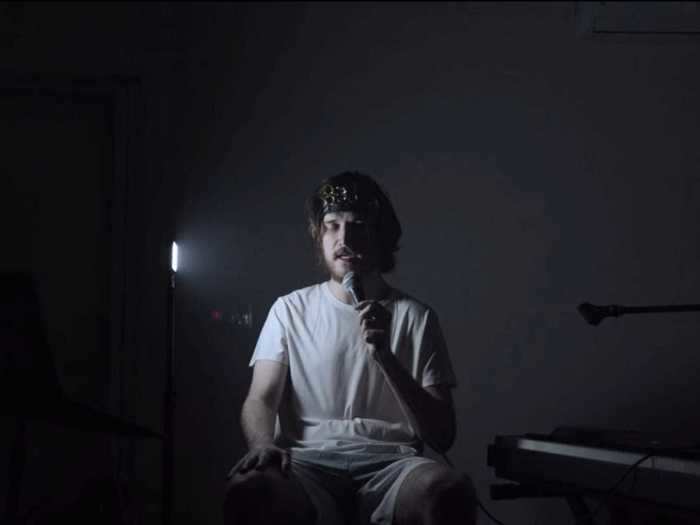
As we explained in this breakdown of 31 details you might have missed in "Inside," Bo Burnham's newest special is a poioumenon — a type of artistic work that tells the story of its own creation. From the very beginning of "Inside," Burnham makes it clear that the narrative arc of the special will be self-referential. It's a series of musical numbers and skits that are inherently about the creation of comedy itself.
At the start of the special, Burnham sings "Content," setting the stage for his musical-comedy.
"Robert's been a little depressed," he sings (referring to himself by his birthname). "And so, today, I'm gonna try just getting up, sitting down, going back to work. Might not help, but still, it couldn't hurt."
This line comes full circle by the end of the special, so keep it in mind.
"Comedy" is the call-to-action song of this musical narrative.
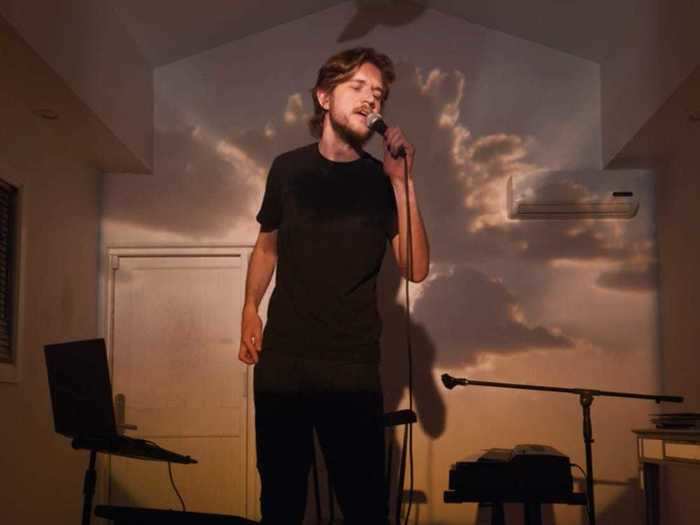
For the song "Comedy," Burnham adopts a persona adjacent to his real life self — a white male comedian who is driven to try and help make the world a better place.
"What do I do?" Burnham says pleadingly.
An ethereal voice (which is really just Burnham's own voice with effects over it) responds to Burnham's question while a bright light suddenly shines on his face, as if he's receiving a message from God.
"Healing the world with comedy, the indescribable power of your comedy," the voice sings. "The world needs direction from a white guy like [you] who is healing the world with comedy."
From then on, the narrative of "Inside" follows Burnham returning to his standard comedic style and singing various parody songs like "FaceTime with My Mom" and "White Woman's Instagram."
Each of the songs from the first half of the special are in line with Burnham's earlier Netflix specials and comedy albums.
But exactly halfway through the special, Burnham turns 30 years old. He says that he had hoped to finish before his birthday, but that deadline came and went. And the special takes a dark turn.
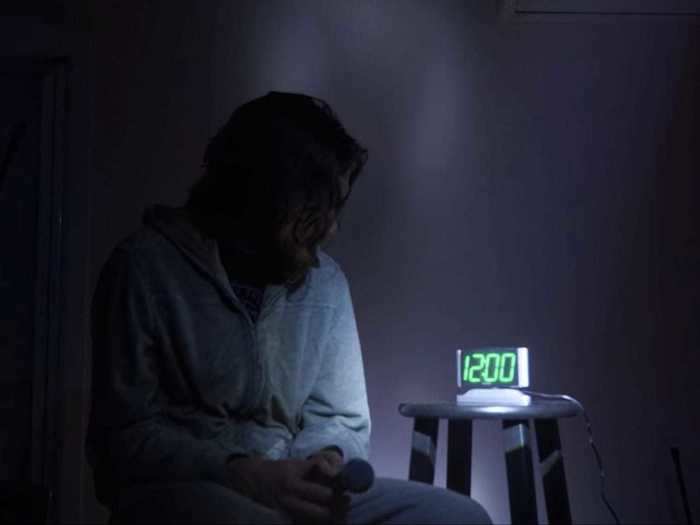
Down to the second, the clock changes to midnight exactly halfway through the runtime of "Inside."
This is when the musical numbers (and in-between skits) become much more grim. Burnham starts spiraling in a mental health crisis, mentioning suicidal ideation after lamenting his advance into his 30s.
After a video game simulation sketch, the screen says "another night approaches" and then it cuts to Burnham getting into bed.
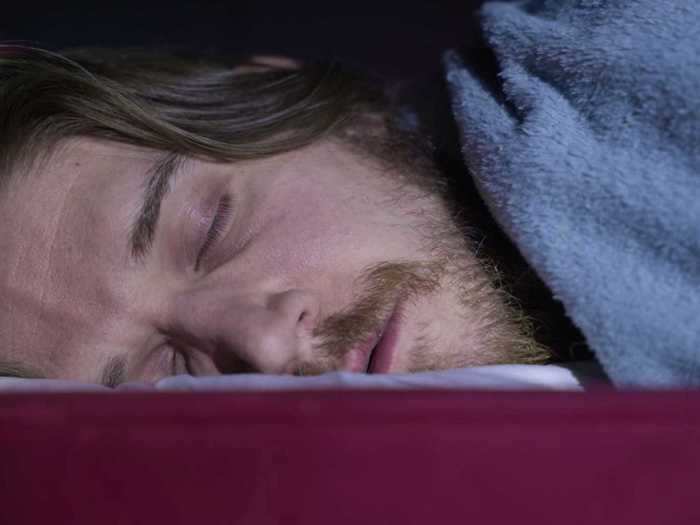
While he's laying in bed, eyes about the close, the screen shows a flash of an open door. It's a hint at the promised future; the possibility of once again being able to go outside and feel sunlight again.
But before that can register, Burnham's eyes have closed and the special transitions to the uncannily catchy song "S---," bopping about how he hasn't showered in nine days or done any laundry.
People experiencing depression often stop doing basic self-care tasks, like showering or laundry or brushing their teeth. As energetic as the song "S---" is, it's really just another clear message about the mental disorder that has its grips in Burnham (or at least the version of him we're seeing in this special).
Right before "All Eyes On Me," we see Burnham in a rare, angry outburst. The background for this scene is exactly the same one from "Comedy."
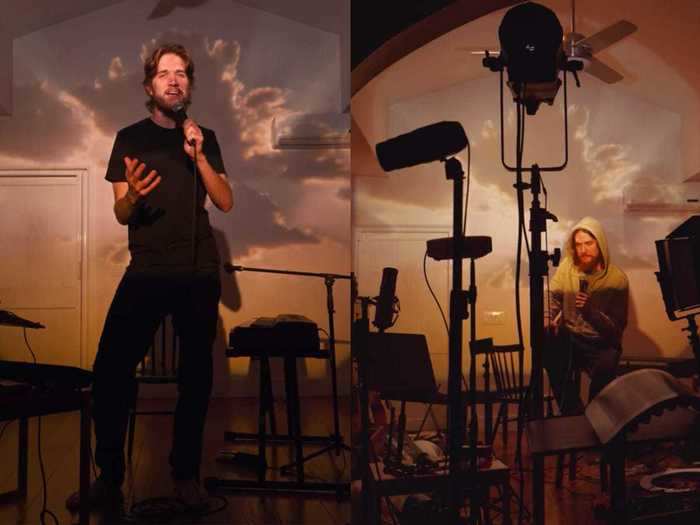
That cloud scene was projected onto Burnham during the section of "Comedy" when Burnham stood up right after the God-like voice had given him his directive to "heal the world with comedy." When we saw that projection the first time, Burnham's room was clean and orderly. His hair and beard were shorter, and he was full of inspired energy.
But now Burnham is showing us the clutter of the room where "Inside" was filmed. He's almost claustrophobically surrounded by equipment.
He tries to talk into the microphone, giving his audience a one-year update. We're a long way from the days when he filmed "Comedy" — and the contrast shows how fruitless this method of healing has been.
If we continue to look at it from the lens of a musical narrative, this is the point at which our protagonist realizes he's failed at his mission.
Burnham slaps his leg in frustration and eventually gives a mirthless laugh before he starts slamming objects around him.
"All Eyes on Me" begins playing right after Burnham collapses into sobs. The whole song sounds like a physical manifestation of depression that has taken over his body and voice.
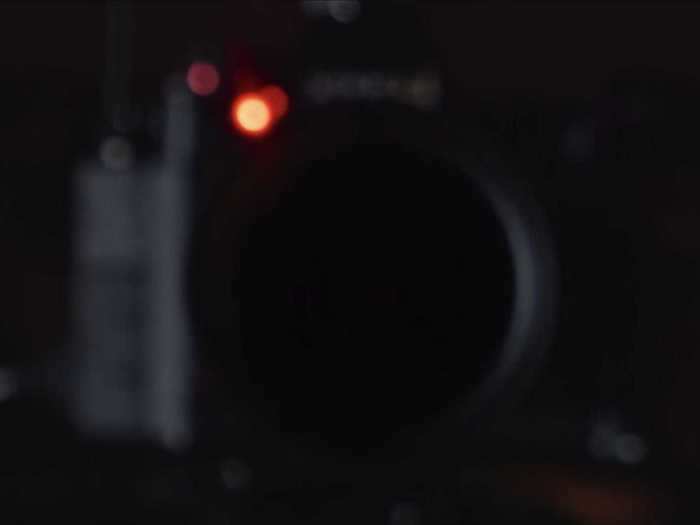
When the song starts, the camera sitting in front of Burnham's mirror starts slowing zooming in, making the screen darker and darker until you (the audience member at home) are sitting in front of the black mirror of your screen.
It's like Burnham's special has swallowed you whole, bringing you fully into his mind at last.
If "All Eyes on Me" sounds disconcertingly comforting you, it could be because you can recognize the mental symptoms of a mood disorder like depression.
Aside from the moment when Burnham sang in that God-like voice, "All Eyes on Me" is the only other time he uses an intense vocal distortion while singing.
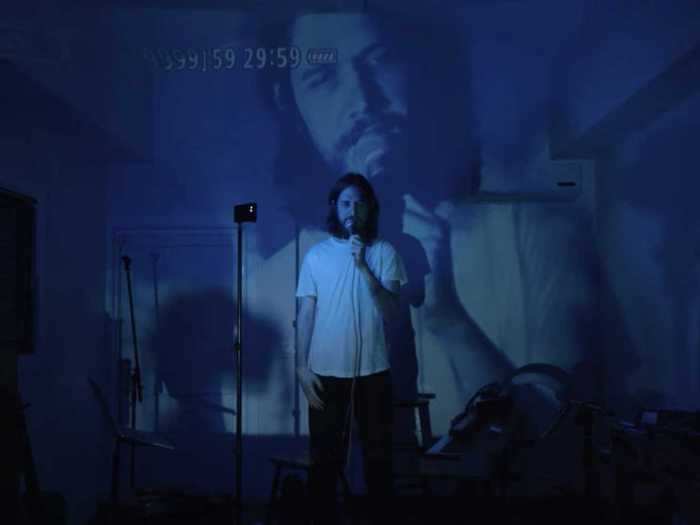
In the same way that earlier vocal distortion represented God, the effect on his voice in "All Eyes on Me" seems to signal some omniscient force outside of Burnham.
In this case, it's likely some combination of depression/anxiety/any other mental disorder.
The song's melody is oddly soothing, and the lyrics are a sly manifestation of the way depression convinces you to stay in its abyss ("It's almost over, it's just begun. Don't overthink this, look in my eye — don't be scared, don't be shy, come on in the water's fine.")
Depression acts like an outside force, one that is rather adept at convincing our minds to simply stay in bed, to not care, and to not try anymore.
The song brings with it an existential dread, but Burnham's depression-voice tells us not to worry and sink into nihilism.
"You say the ocean's rising, like I give a s---," he sings. "You say the whole world's ending, honey it already did, you're not gonna slow it, heaven knows you tried. Got it? Good. Now get inside."
The whole song sounds like you're having a religious experience with your own mental disorder, especially when new harmonies kick in. It's a dangerously tempting invitation to stop caring, coming from the villain of this musical comedy (depression).
"All Eyes on Me" is the emotional climax of the story. But then our protagonist wakes up.

Mirroring the earlier scene where Burnham went to sleep, now Burnham is shown "waking up."
We see Burnham moving around in the daylight, a welcome contrast to the dark setting of "All Eyes on Me." He brushes his teeth, eats a bowl of cereal, and begins editing his videos.
It's a quiet, banal scene that many people coming out of a depressive episode might recognize. Finally doing basic care tasks for yourself like eating breakfast and starting work in the morning.
Now we've come full circle from the start of the special, when Burnham sang about how he's been depressed and decided to try just getting up, sitting down, and going back to work.
At last, Burnham sings his "Goodbye," and manages to go outside - only to feel terrified and vulnerable in the spotlight.
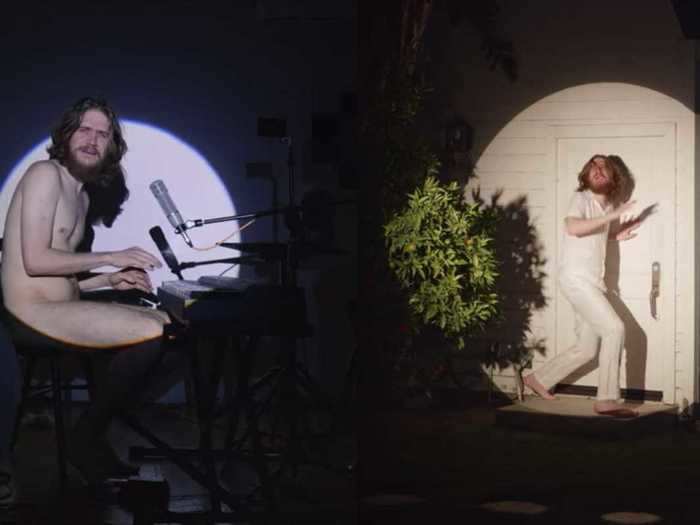
Once he's decided he's done with the special, Burnham brings back all the motifs from the earlier songs into "Goodbye," his finale of this musical movie.
Mid-song, a spotlight turns on Burnham and shows him completely naked as a voice sings: "Well, well, look who's inside again. Went out to look for a reason to hide again. Well, well, buddy you found it, now come out with your hands up we've got you surrounded."
This is a heartbreaking chiding coming from Burnham's own distorted voice, as if he's shaming himself for sinking back into that mental state.
For all the ways Burnham had been desperate to leave the confines of his studio, now that he's able to go back out into the world (and onto a real stage), he's terrified. It's like the mental despair of the last year has turned into a comfort.
But in the end, Burnham watches back what he's made, and smiles ever so slightly.
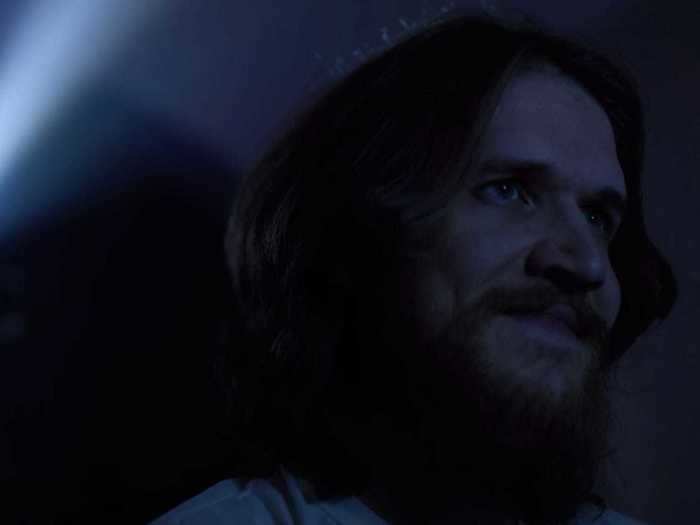
Burnham watching the end of his special on a projector also brings the poioumenon full circle — the artist has finished their work and is showing you the end of the process it took to create it.
In one interpretation, maybe the smile means he's ready to be outside again. And maybe the rest of us are ready, too.
But Burnham is of course the writer, director, editor, and star of this show. Is he content with its content? Relieved to be done? Still terrified of that spotlight? Simply smiling at the irony of watching his own movie come to life while he's still inside?
Only he knows.
See our full breakdown of every detail and reference you might have missed in "Inside" here.
READ MORE ARTICLES ON
Popular Right Now
Popular Keywords
Advertisement